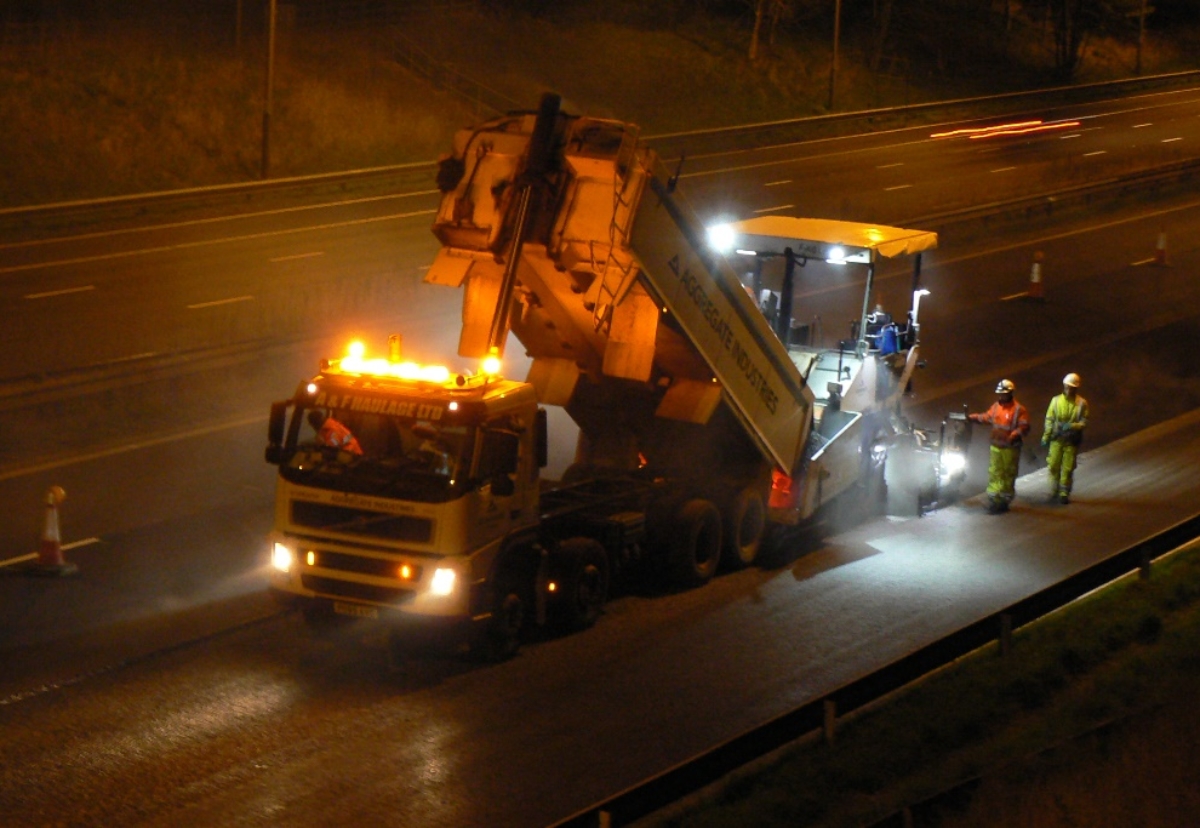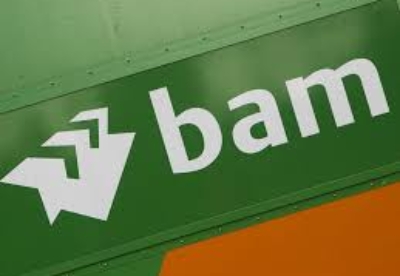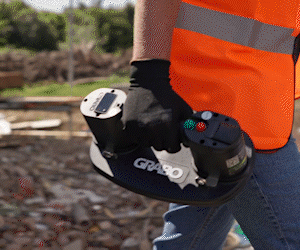The team laid over 1,100 tonnes of road surface in one night, four times higher than expected during an average resurfacing shift.
Motorway resurfacing work that would normally have taken seven nights to complete was completed over two nights, with no near misses or safety incidents recorded.
A 25-strong team carried out the work on a two-mile stretch of the M6 between junctions 28 and 27 near Leyland.
A total of 13,200 sq m of tarmac was laid in a single night – enough to cover the equivalent of two football pitches.
Advanced preparation work took place on a Friday night including planing off the existing road surface and repairing deep cracks and potholes.
A lane closure was kept in place during the day on the Saturday to protect the unfinished road surface and meant crews could focus entirely on laying the new 50mm deep tarmac on the Saturday night.
The normal method of working would have required workers to be out on the motorway for 7 nights to allow small sections of the carriageway to be repaired and resurfaced each night.
John Lyssejko, project manager at Highways England, said: “We’re keen to do things differently, maintain high standards and reduce the impact on drivers and this new method of working ticks every box.
“Everyone worked really hard on the planning and on the night to make it work, and the response has been very positive. Now we know how well it works, and we are confident that we can maintain safety, we can start to look to use the method elsewhere on the network.”
Record-breaking crew
The crew laid an average of 163.7 tonnes of road surface every hour with a total of 1146.3 tonnes laid during the Saturday night shift. They used the following machinery:
- 14 tippers
- 3 rollers
- 3 traffic management vehicle
- 2 crew buses
- 1 planer
- 1 paver
- 1 sprayer
- 1 sweeper
- 1 JCB
- 1 detectors wagon
- 1 line marking and stud wagon


























































